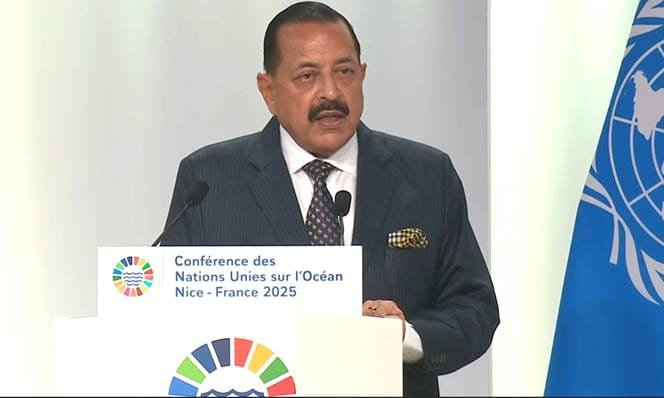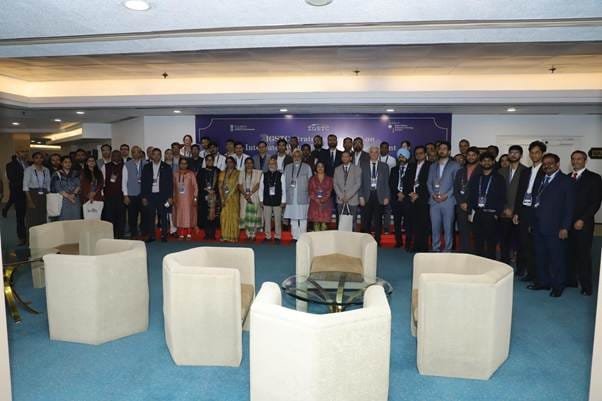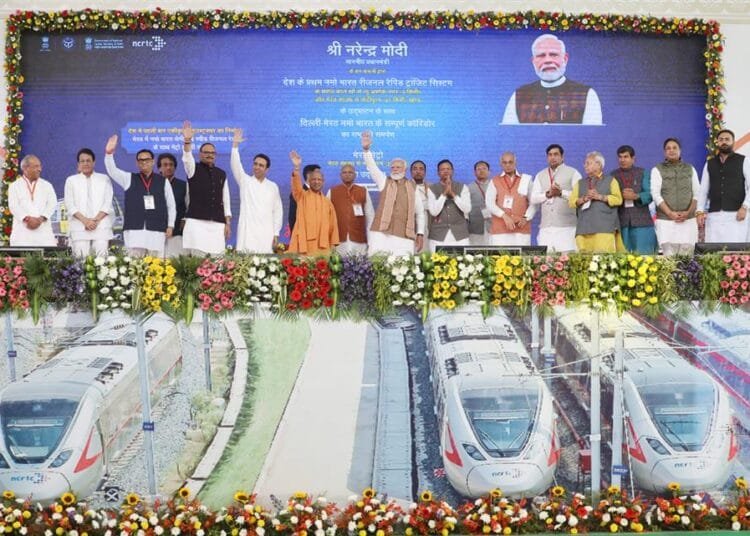India held co-leadership in ‘Blue Talks’ with France-Costa Rica
India has invested over US$80 billion on developing its Blue Economy, which included operationalizing 600+ port-led infrastructure projects as well as investments of US$2.5 billion on modernizing the fisheries sector.
This update was given by Minister of Earth and Sciences Dr Jitendra Singh to delegates at the Third United Nations Ocean Conference (UNOC3) in Nice on 20 June.
He also pushed for global ocean pact and unveiling major strides in deep-sea exploration and spoke about progress on ‘Samudrayaan’ project, which is expected to deploy India’s first manned submersible by 2026. The project aims to explore ocean depths up to 6,000 meters and is seen as a major leap in India’s scientific capability.
India also backed the swift ratification of the BBNJ Agreement, an international treaty adopted in 2023 to protect and sustainably use marine life beyond national jurisdiction, he said.
Addressing the conference, which is co-hosted by France and Costa Rica under the theme “Accelerating Action and Mobilizing All Actors to Conserve and Sustainably Use the Ocean”, Dr Jitendra Singh reaffirmed India’s commitment to Sustainable Development Goal 14: Life Below Water.
He outlined how India’s initiatives are aimed at reversing ocean degradation through science, innovation, and inclusive partnerships.
Dr Jitendra Singh also spoke of expanding India’s Marine Protected Areas, which now cover 6.6% of the Exclusive Economic Zone, contributing to global biodiversity goals.
On marine pollution, the Minister pointed to tangible outcomes from the ‘Swachh Sagar, Surakshit Sagar’ campaign, which has cleaned over 1,000 km of India’s coastline and removed more than 50,000 tonnes of plastic waste since 2022.
Further, the draft marine litter policy has been prepared, and India continues to support negotiations on a Global Plastics Treaty aimed at a legally binding international framework.
Emphasizing climate resilience, Dr Jitendra Singh noted the restoration of over 10,000 hectares of mangroves and the implementation of shoreline management plans using nature-based solutions. India has also integrated ocean-based climate actions into its Nationally Determined Contributions under the Paris Agreement.
India’s growing role in global ocean governance was evident through its co-leadership in ‘Blue Talks’ with France and Costa Rica, and its active participation in high-level events such as the India-Norway side session on Marine Spatial Planning. The launch of the ‘SAHAV’ portal during the conference further adds to its credentials in promoting transparent, science-based ocean management.
Calling for a robust ‘Nice Ocean Action Plan’, Dr Jitendra Singh urged the international community to invest in innovation, ratify the BBNJ Agreement, and finalize the plastics treaty.
“The ocean is our shared heritage and responsibility,” he said, expressing India’s readiness to work with all stakeholders, Governments, private sector, civil society, and indigenous communities, to ensure a sustainable ocean future.
The Indian delegation’s participation at UNOC3 signals a clear message: India is positioning itself not just as a coastal nation but as a proactive player in shaping global ocean policy. Fiinews.com










